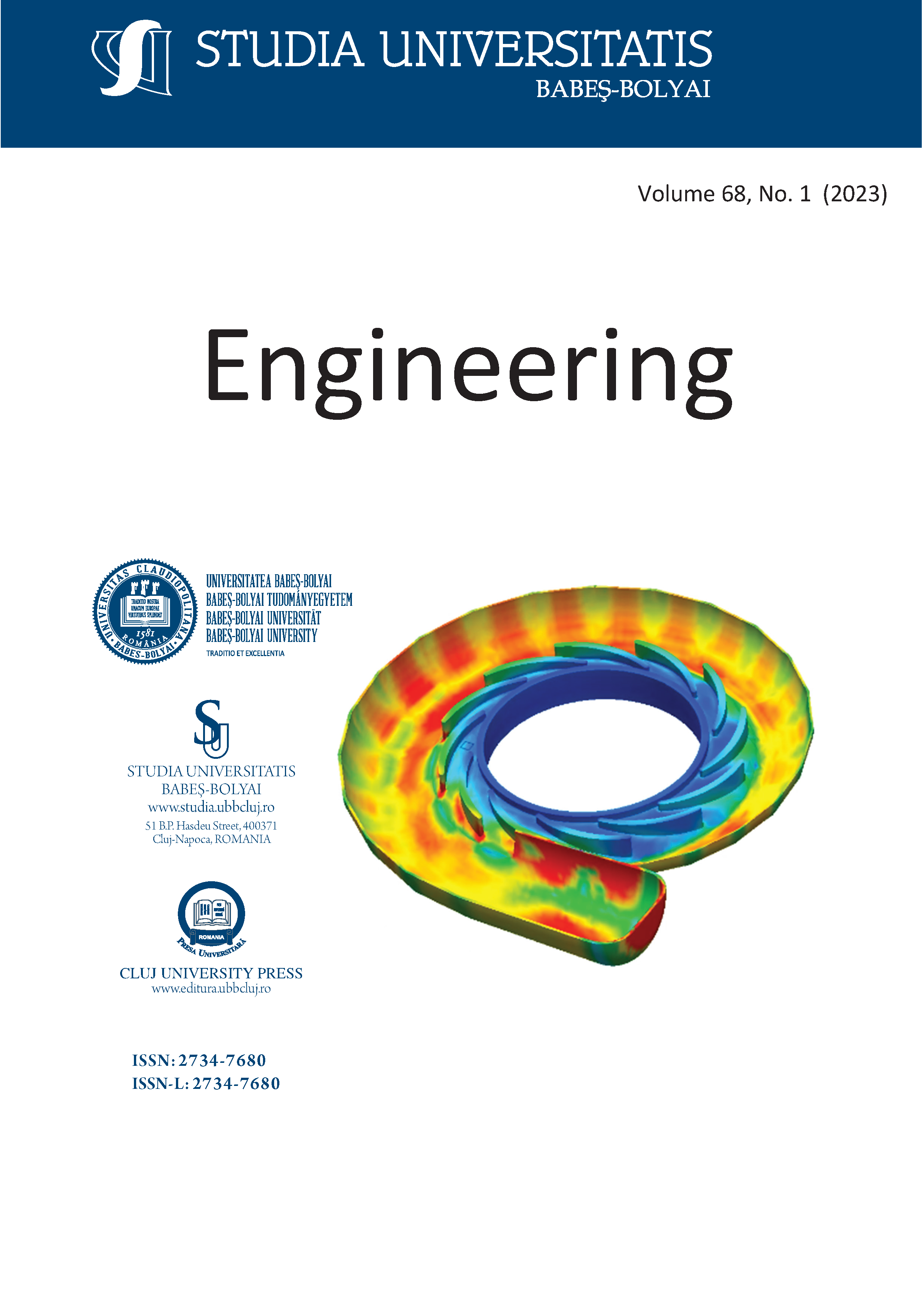Hybrid Soft Computing System for Student Performance Evaluation
DOI:
https://doi.org/10.24193/subbeng.2023.1.1Keywords:
Hybrid; Soft Computing; Clustering Algorithm; Machine learning; Optimization Algorithm.Abstract
Education Institutions have deployed technology accelerated learning systems and innovations for effective learning outcomes. Evaluating student’s performance in these systems must align with the cognitive, affective, and psychomotor learning domains. In this research, a Hybrid soft computing system comprising of the Clustering Algorithm, Machine learning technique, and Optimization algorithm were hybridized and implemented to evaluate student academic performance using academic, social, and economic data of students. The proposed model demonstrated the best results with the lowest mean square error (MSE) and root mean square error (RMSE) values of 0.17 and 0.41, respectively. Additionally, the GANFIS model achieved values of 0.25 and 0.50, respectively, which slightly outperformed the proposed FCM-PSOANFIS model. The proposed model works better with bigger datasets, and it de-livers higher predictive findings under settings that depict student learning capacities while assessing student academic achievement.References
Kharola A., A hybid ANFIS techniques for effective performance evaluation., PM World Journal, 4(9), 2015, pp. 21-39.
Mertens D., Research and Evaluation in Education and Psychology: Integrating Diversity With Quantitative, Qualitative, and Mixed Methods, SAGE Publications. https://books.google.com.ng/books?id=6RR7DwAAQBAJ, 9781544333748, 2019
Liu O.L., Bridgeman B., Adler M.R., Measuring Learning Outcomes in Higher Education: Motivation Matters., Educational Researcher 41(9), 2012, https://doi.org/10.3102/0013189X12459679, pp. 352–362.
Tang J., Liu G. Pan i Q., A Review on Representative Swarm Intelligence Algorithms for Solving Optimization Problems: Applications and Trends, IEEE/CAA Journal of Automatica Sinica, 8(10), 2021, pp. 1627-1643. doi: 10.1109/JAS.2021.1004129
Zajmi L., Ahmed F.Y.H., Jaharadak A.A., Concepts, Methods, and Performances of Particle Swarm Optimization, Backpropagation, and Neural Networks, Applied Computational Intelligence and Soft Computing Hindawi, 2018, https://doi.org/10.1155/2018/9547212
Thandevaraj E., Gani N., Nasir M., A Review of Psychological Impact on Students Online Learning during Covid-19 in Malaysia, Creative Education, 12(6), 2021, doi: 10.4236/ce.2021.126097. pp. 1296-1306.
Boutakidis I, Rodriguez J. L., Academic motivation and engagement across three generations of Latino/a junior high school students, Journal of Latinos and Education, 21(5), 2022, https://doi.org/10.1080/15348431.2019.1674147
Udeni J., Ajantha S., Anuja D., Student’s Performance Evaluation in Online Education System vs Traditional Education system, International Confrerence on Remote Engineering and Virtuak Instrumentation. Bangkok, Thailand: IEEE, 2015, pp. 127-131.
Lin C., Optimization of Bearing Locations for Maximizing First Mode Natural Frequency of Motorized Spindle-Bearing Systems Using a Genetic Algorithm., Applied Mathematics, 5, 2014, doi: 10.4236/am.2014.514208., pp. 2137-2152.
Faiz M. Al, Sadeq S., Particle Swarm Optimization Based Fuzzy-Neural Like PID Controller for TCP/AQM Router, Intelligent Control and Automation, 3(1), 2012, doi: 10.4236/ica.2012.31009., pp. 71-77.
Amirah M.S., Wahidah H., Nur’aini A.R., A Review on Predicting Student’s Performance Using Data Mining Techniques, Procedia Computer Science, 72, 2015, https://doi.org/10.1016/j.procs.2015.12.157. https://www.sciencedirect.com/science/article/pii/S1877050915036182, pp. 414-422.
Livieris I.E., Drakopoulou K., Pintelas P., Predicting students’ performance using artificial neural networks, 8th PanHellenic Conference with International Participation Informaion and Communication Technologies, 2012, pp. 321-328.
Rao G., Kumar K., Students Performance Prediction in Online Courses Using Machine Learning Algorithms, United International Journal for Research&Technology (UIJRT), 2(11), 2021, pp. 74-79.
Oladokun V., Adebanjo A., Charles-Owaba O., Predicting Students Academic Performance using Artificial Neural Network: A Case Study of an Engineering Course, The Pacific Journal of Science and Technology. 9(1). http://www.akamaiuniversityhttps://www.researchgate.net/publication/228526441_Predicting_Students_Academic_Performance_using_Artificial_Neural_Network_A_Case_Study_of_an_Engineering_Course, 2008.
Yao B., Hagras H., Alhaddad M.J., Al-Ghazzawi D.M., A fuzzy logic-based system for the automation of human behavior recognition using machine vision in intelligent environments, Soft Computing, 19, 2015, https://doi.org/10.1007/s00500-014-1270-4, pp. 499-506.
Petrudi S.H.J., Pirouz M., Pirouz B., Application of fuzzy logic for performance evaluation of academic students, 13th Iranian Conference on Fuzzy Systems (IFSC), 2013, doi: 10.1109/IFSC.2013.6675615.
Petar H., Prediction of e-Learning Efficiency by Neural Networks, Cybernetics and Information Technologies, 12(2), 2012, DOI: 10.2478/cait-2012-0015
Cooper C., Students At Risk: The Impacts of Self-Efficacy and Risk Factors on Academic Achievement, 2015.
Khasanah A.U., Havarti, A Comparative Study to Predict Student’s Performance Using Educational Data Mining Techniques, IOP Conference Series: Materials Science and Engineering, 215, 2017.
Karamouzis S.T., Vrettos A., An Artificial Neural Network for Predicting Student Graduation Outcomes, Proceedings of the World Congress on Engineering and Computer Science, Oct. 22-24, 2008, San Francisco https://www.academia.edu/67409477/An_Artificial
Huang S., Fang N., Work in progress - Prediction of students’ academic performance in an introductory engineering course, Frontiers in Education Conference (FIE), S4D-1-S4D-3., 2011. DOI:10.1109/FIE.2011.6142729
Mrinal P., Taruna S., Towards the integration of multiple classifier pertaining to the Student’s performance prediction, Perspectives in Science, 8, Available online at www.sciencedirect.com ScienceDirect, 2016, pp. 364-366,
Al-Hmouz A., Shen J., Al-Hmouz R., Yan J., Modeling and Simulation of An Adaptive Neuro-Fuzzy Inference System (ANFIS) for mobile learning, IEEE Transactions on Learning Technologies, 5(3), 2012, pp. 226-237.
Asif R., a.o., Analyzing undergraduate students’ performance using educational data mining, Journal of Comput. Educ. 113, 2017, pp. 177-194.
Downloads
Published
How to Cite
Issue
Section
License
Copyright (c) 2023 Studia Universitatis Babeș-Bolyai Engineering

This work is licensed under a Creative Commons Attribution-NonCommercial-NoDerivatives 4.0 International License.





 © Studia Universitatis Babeş-Bolyai Engineering. Published by Babeș-Bolyai University.
© Studia Universitatis Babeş-Bolyai Engineering. Published by Babeș-Bolyai University.